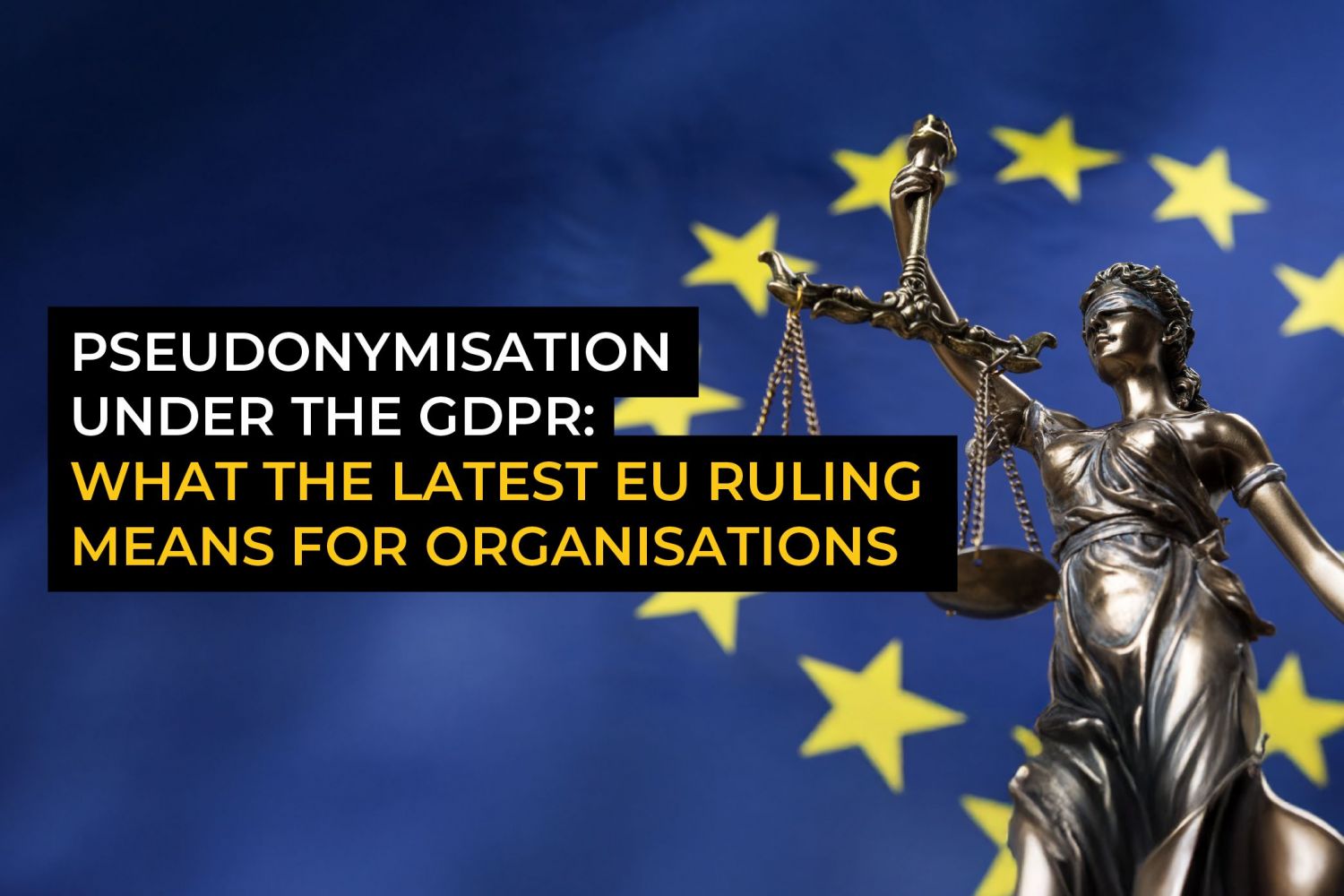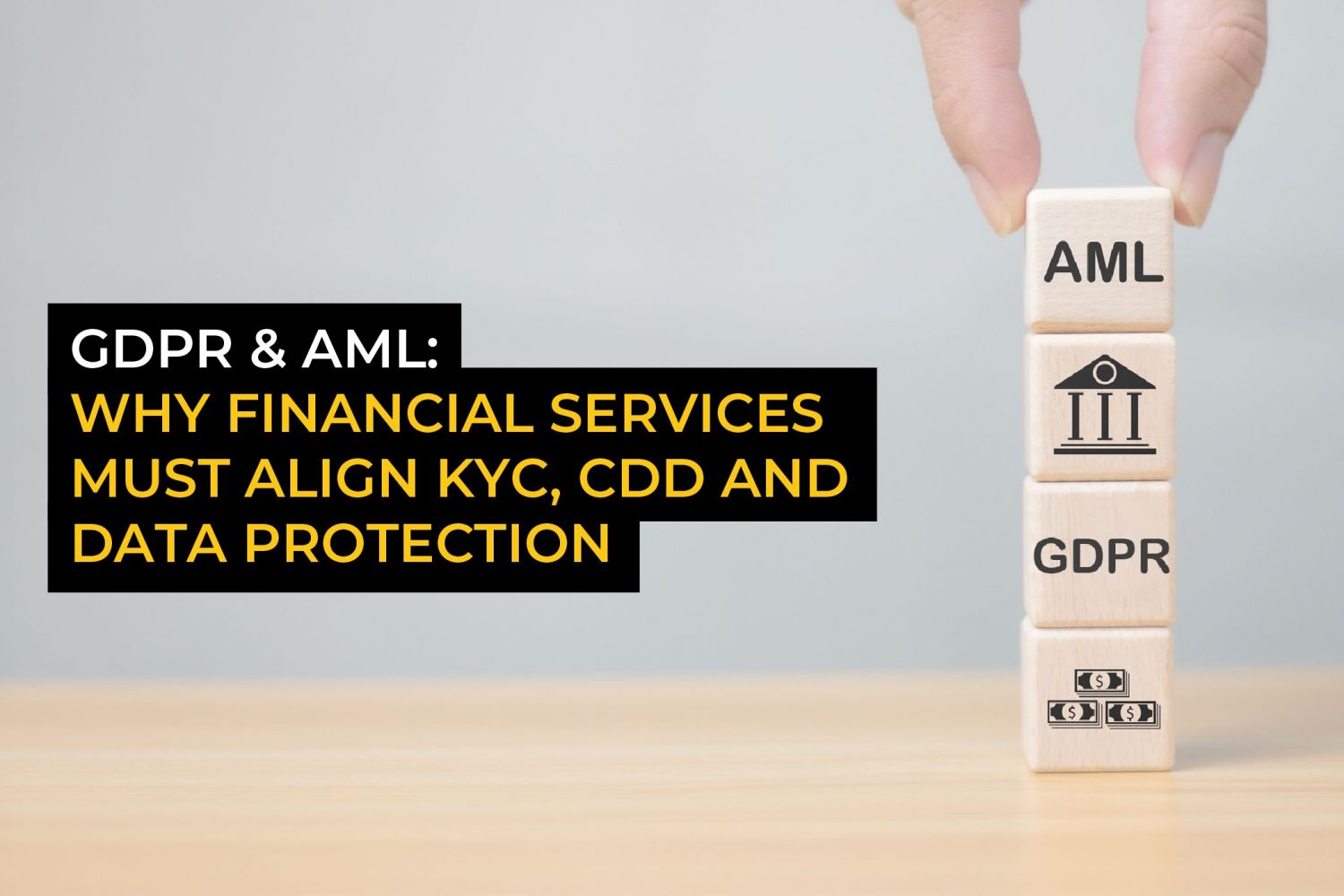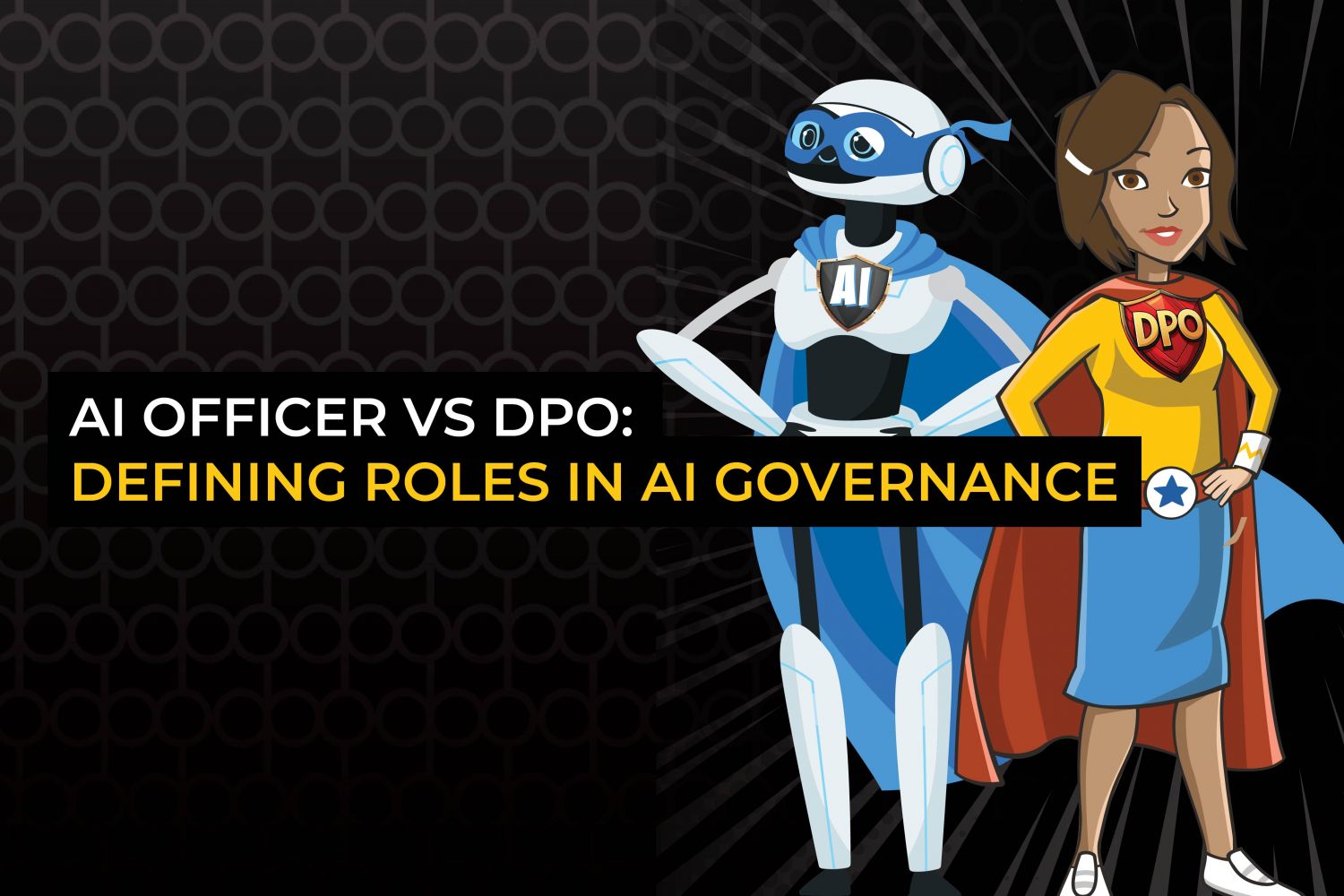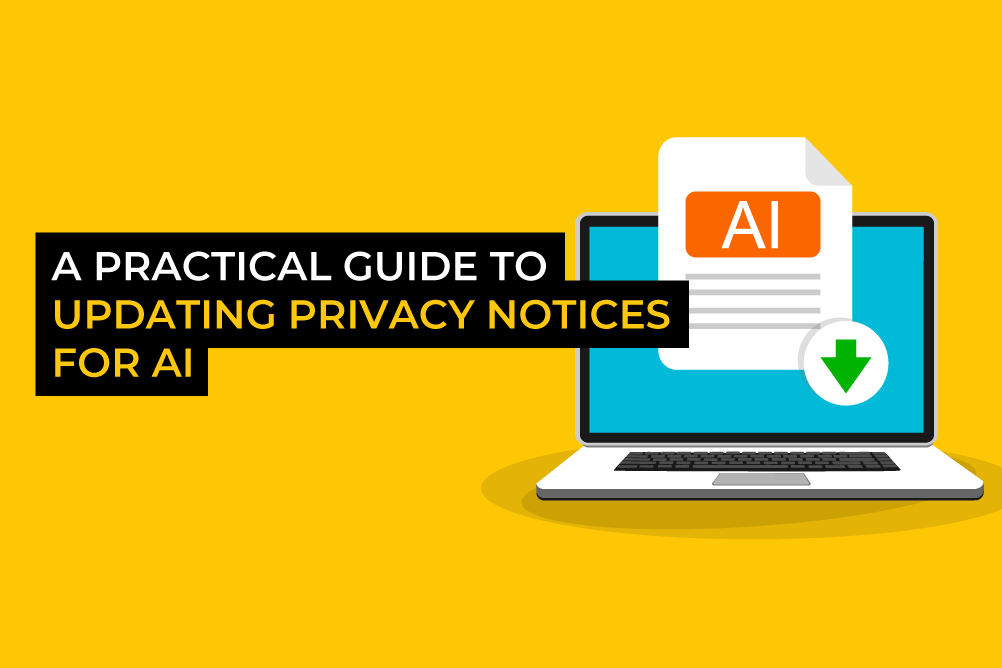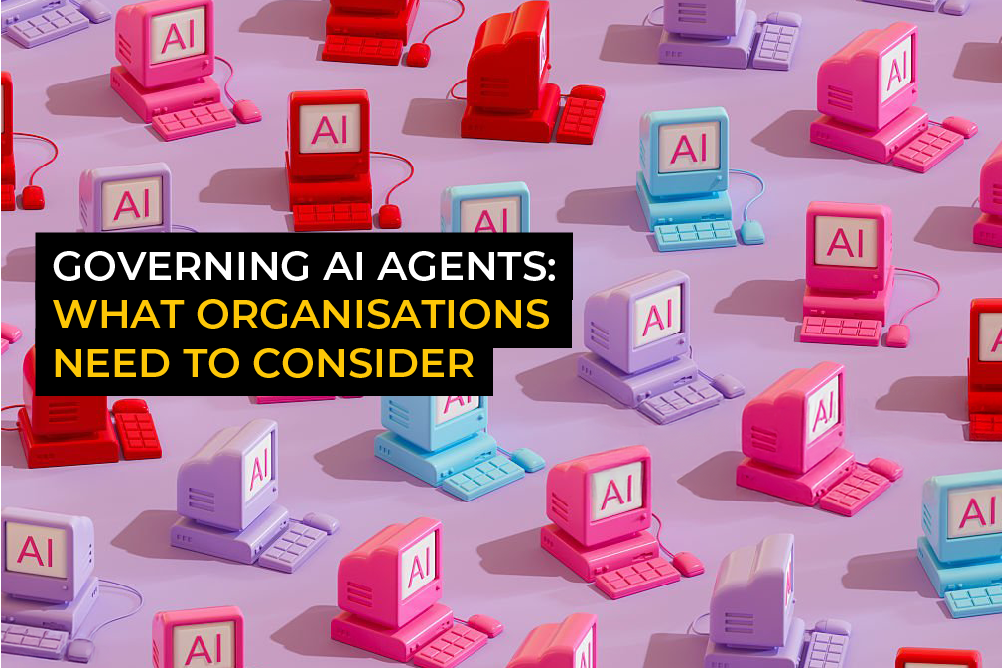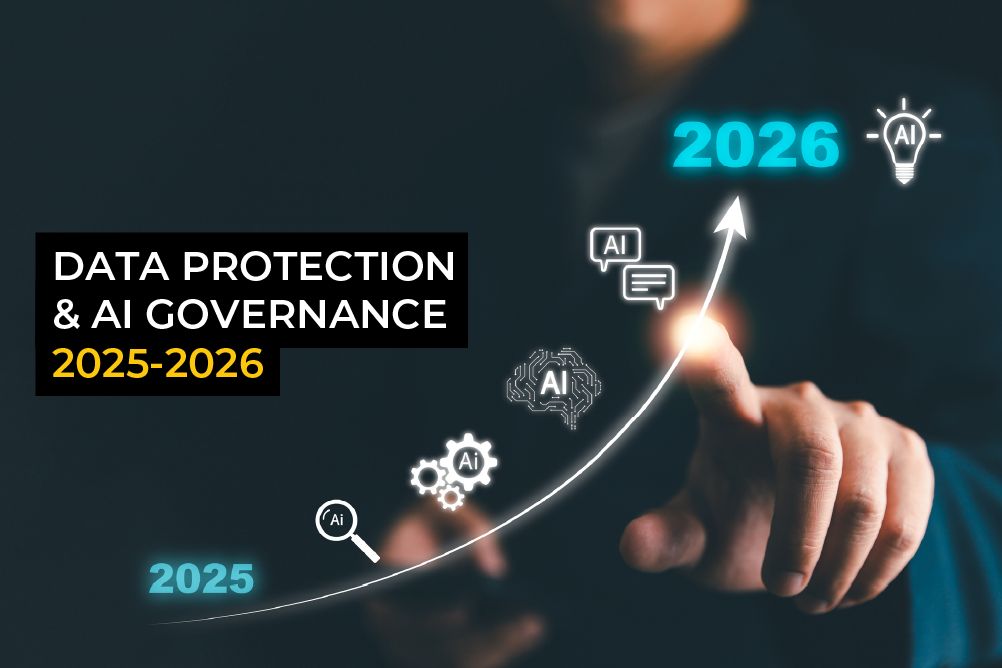What does an AI Officer do?
An AI Officer oversees the responsible use of artificial intelligence within an organisation. They develop AI governance frameworks, coordinate AI Impact Assessments (AIIAs), and ensure that systems align with legal, ethical, and organisational standards.
What is the difference between an AI Officer and a Data Protection Officer?
The DPO focuses on compliance with data protection lawAny law, statute, declaration, decree, directive, legislative enactment, order, ordinance, regulation, rule or other binding restriction (as amended, consolidated or re-enacted from time to time) that relates to the protection of individuals with regards to the Processing of personal data. and safeguarding individual rights. The AI Officer’s remit is broader, covering ethical AI use, organisational risk management, and alignment with AI-specific regulations such as the EU AI Act.
Who is responsible for AI compliance?
Responsibility for AI compliance depends on the organisation’s structure and the nature of its AI systems. Under the EU AI Act, providers and deployers of high-risk AI systems must implement robust compliance frameworks and assign clear accountability for meeting regulatory obligations. This may involve roles such as AI Officers, Data Protection Officers, compliance leads, or dedicated governance committees working together to oversee AI risk and regulatory adherence.
What skills does an AI Officer need?
AI Officers typically combine legal and regulatory understanding with technical literacy and strong ethical awareness. Key skills include risk assessment, data governance, stakeholderAn individual with an interest or concern in something (i.e. a Social Worker, Healthcare Professional, Headteacher etc. in respect of the welfare of a child). communication, and familiarity with AI regulation.
How can a DPO prepare for AI governance?
DPOs can start by understanding how AI systems within their organisation process personal data, updating Data Protection Impact AssessmentA formal documented assessment which allows decision-makers to identify, manage and mitigate any data protection risks associated with a project. (DPIA) templates to reflect AI-specific risks, and collaborating with technical teams to embed Privacy by Design.
Can one person act as an AI Officer and DPO?
In smaller or lower-risk organisations, the DPO may also act as the AI Officer, provided they have the right expertise and independence. For larger organisations or those developing high-risk AI, separating the roles can help manage accountability and workload more effectively and prevent conflict of interest between business need and individual privacy rights.

